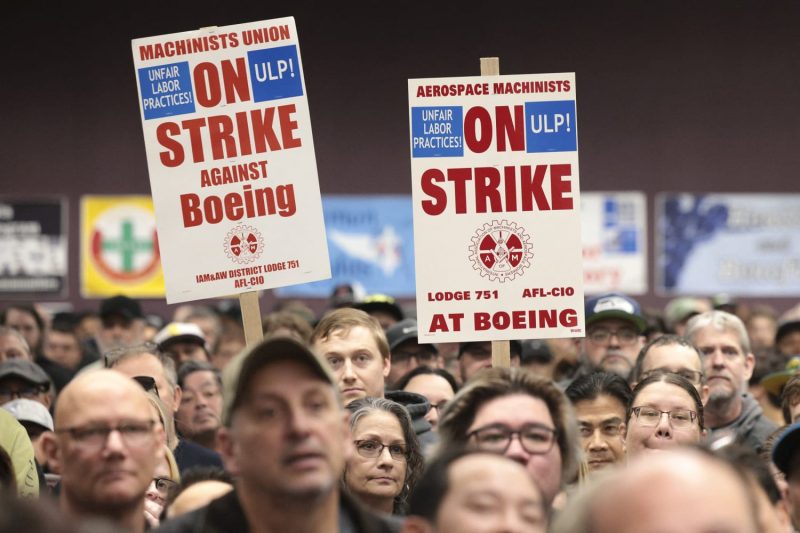In a pivotal moment for Boeing’s workforce, employees are gearing up to vote on a new proposal that has the potential to end the ongoing strike and shape the future of the company’s labor relations. The proposed agreement, crafted after weeks of intense negotiations between Boeing and the International Association of Machinists and Aerospace Workers (IAMAW), is expected to address key issues that have led to the strike, including wages, benefits, and job security.
One of the central elements of the proposed agreement is a significant wage increase for Boeing workers, aimed at addressing the concerns regarding fair compensation and cost of living adjustments. This increase not only reflects the valuable contribution of the employees to the company’s success but also aims to ensure that workers are fairly rewarded for their hard work and dedication.
Moreover, the new proposal also includes improvements in healthcare benefits, aiming to provide enhanced coverage and support for Boeing employees and their families. Access to quality healthcare is a crucial factor for employees in any industry, and the proposed changes signal Boeing’s commitment to the well-being of its workforce.
In addition to addressing immediate concerns, the proposed agreement also includes provisions aimed at enhancing job security for Boeing workers. Amidst the challenges posed by the rapidly evolving aerospace industry, job security is a pressing issue for many employees. The proposed agreement seeks to provide assurances to the workforce by outlining measures to protect jobs and support long-term employment stability.
Furthermore, the proposed agreement incorporates provisions for skills development and training opportunities, with the aim of equipping Boeing employees with the necessary tools and knowledge to adapt to changing industry demands. In a technology-driven sector like aerospace, continuous skills development is crucial for both the employees and the company to remain competitive and innovative.
The upcoming vote on the new proposal represents a critical juncture for both Boeing and its employees. It is a test of the strength of their relationship and the ability to find common ground amidst differing priorities. The outcome of the vote will not only impact the immediate working conditions and benefits of Boeing workers but also set a precedent for future labor negotiations within the company.
As both sides prepare for the vote, the discussions and decisions made in the coming days will shape the trajectory of Boeing’s workforce and labor relations. The outcome of the vote will determine whether the proposed agreement is accepted and sets the stage for a new chapter in the relationship between Boeing and its employees.
